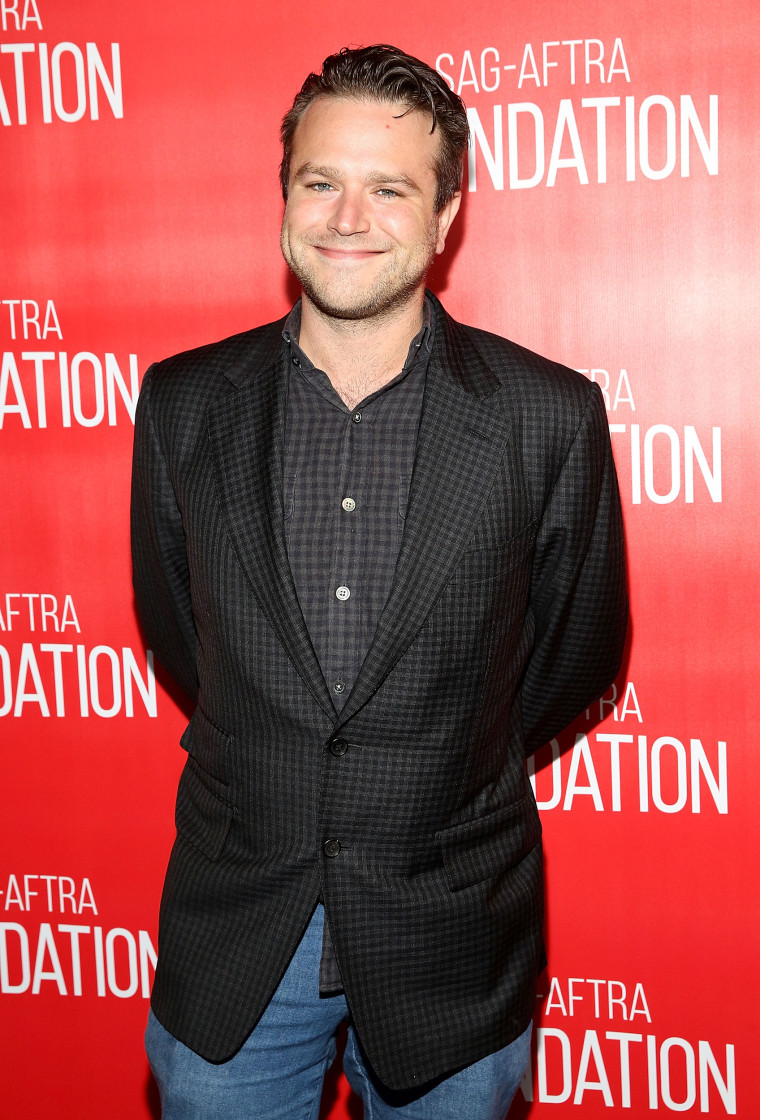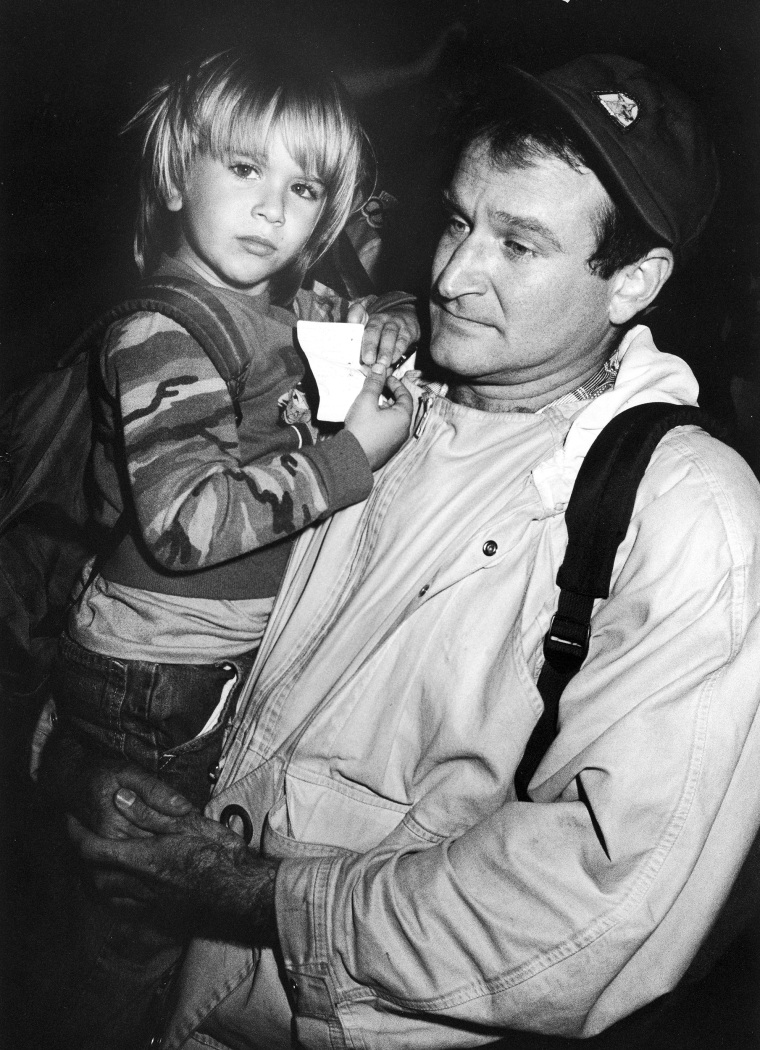Robin Williams' son Zak Williams has been working towards removing the stigma surrounding mental health, while also addressing the systemic challenges associated within the mental health industry as well.
The organization he is working with to do the latter is Inseparable, a coalition trying to ensure that everyone in the United States has access to affordable, high-quality mental health care.

What is Inseparable?
"Part of Inseparable's mandate is to enable expanded access for all Americans to have high quality care," Williams, an Inseparable board advisor, told TODAY. "And when it comes to mental health support in this day and age, most Americans don't have access to that care."
Inseparable believes that under the current system, mental health care is often deemed a luxury dependent on location and cost of treatment. Their goal is to increase access to care, affordability and parity through mental health reforms at the local, state and federal levels.
"Expanded access to support all people is essential, especially at a time when we're in the most need," he said. "And we need to take measures to ensure that people get the appropriate support they need, whether it involves prevention, support for chronic conditions or expanded support and services for intervention-oriented situations."
Why mental health services are so important right now
There isn't a more important time to be shining a light on these issues than during the coronavirus pandemic, when people around the country are reporting increased anxiety and depression.
The Centers for Disease Control and Prevention and Census Bureau released data from mid-May that found that reported symptoms of anxiety disorder and depressive disorder are on the rise. The Kaiser Family Foundation recently conducted a poll finding that the pandemic has negatively affected the mental health of 56% of adults. And in April, texts to a federal emergency mental-health line were up 1,000% compared to the same period last year.
"... People are feeling more isolated. People are feeling like they're having to self-medicate more than usual and it's important to be able to establish broader reach for services that support people and make them feel more connected," Williams stressed. "What I love about Inseparable is they are taking a lens around what the expanded scope of accessing care looks like and how we can get to that point of enhanced access and care."
What's being done for at-risk communities
Data is showing that the coronavirus is impacting Black communities at a disproportionately high rate. Even before the pandemic, Black Americans were dramatically less likely than the general population to seek out mental health treatment.
“Black people will not go to a physician or to a provider if they cannot find somebody who looks like them, or (somebody) who can understand what they are going through,” Dr. Jonathan Shepherd, chief medical director of Hope Health Systems in Baltimore, Maryland, and board president of the Black Mental Health Alliance, said.
"It's vital that we identify and address the underlying traumas and structural violence on Black and brown communities as a major driver of mental health issues," Dr. Ashwin Vasan, a physician in New York and one of Inseparable's board advisors, told TODAY. "The fact that access to mental health care is far more sparse in Black and brown communities is essentially a setup for creating real problems both short- and long-term. More than one third of Americans live in a mental health professional shortage area, predominantly in communities of color and in rural areas, and there is a significant shortage of Black and brown behavioral health providers who can deliver culturally-competent care."
Vasan added that a lack of access to high-quality mental health care in conjunction with long histories of discrimination in policing, schooling, housing, economic opportunity and the generations of disinvestment in Black and brown communities is "a recipe for chronic trauma."
Williams stressed that coronavirus is exposing flaws in our system that were already there.
"The cracks are starting to show," he said. "We need to be oriented towards having empathy and showing consideration and love across the board. And I think there's a lot of positive developments, especially around coalition building and people talking about mental health, but there's so much more work that needs to be done."
Honoring his father's memory
Before sitting down with TODAY, Williams celebrated his son's first birthday with a socially distant gathering via Zoom. Introducing his son to his father's legacy is something that is naturally happening in his home.
"I have slowly started showing photos and pictures to my son, things from movies and in animation that my dad was in," he explained. "... We have photos and memories around our home and he's drawn to them. And so when he sees the Genie from 'Aladdin' or when he sees a photo of his grandfather, he's drawn to it. And so we talk about it ... It's a nice way to carry on my dad's legacy related to our family history."

Through the experience of losing a loved one, Williams has learned that self-care is paramount.
"I'm not broken... through taking care of myself and committing to supporting myself I can show up for others in the way that I want to," he said. "And the healing and recovery process associated with experiencing a deep trauma relating to the suicide of a loved one is a process that takes awhile and there's ups and downs."
"But the key thing is that most of the time there's opportunities to find joy and to figure out how to live a meaningful and happy life. So that's what I'd say."
